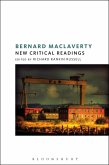Originally published in 1971, this first full-length treatment of Shaw as director is important for several reasons: first, because Shaw was one of the few major playwrights who frequently directed his own works; second, because he was a good director; and third, because he is an early example of the modern idea of the director as guiding artist in the production of a play.
After an initial chapter examining Shaw's background and experiences in the theatre before he began to direct plays, Dukore explores various aspects of Shavian directorial theory and practice. He shows that, while Shaw's basic concern was with the actor, he was also involved in all the minute considerations that make up a successful production, including pre-rehearsal planning, casting, cutting and changing the script (though Shaw forbade other directors to cut his plays, he himself did so), conducting rehearsals, acting, scenery, lighting, and costuming. Throughout his analysis, the author makes use of previously unpublished material, particularly Shaw's rehearsal notes, written in the auditorium when he staged his plays, and letters to actors.
This is a readable book, essential for anyone interested in Bernard Shaw's plays.
Dieser Download kann aus rechtlichen Gründen nur mit Rechnungsadresse in A, B, BG, CY, CZ, D, DK, EW, E, FIN, F, GR, HR, H, IRL, I, LT, L, LR, M, NL, PL, P, R, S, SLO, SK ausgeliefert werden.









